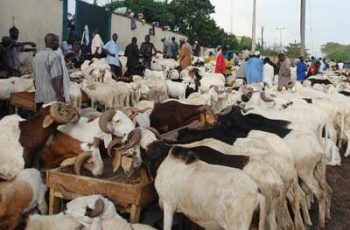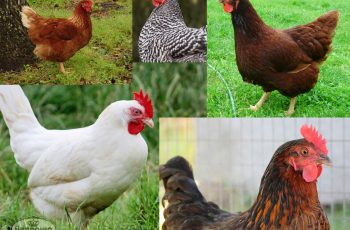How To Start Guinea Corn Farming In Nigeria: The Complete Guide

Guinea corn farming business is undeniably a very lucrative and profitable agribusiness investment in Nigeria. Although guinea corn grows very well under arid environment, you can still grow it in the South. It will interest you to know that there are about 2.8 million hectares of land cultivated annually for guinea corn production. Guinea corn farming is mostly carried out in Sokoto, Kastina, Nasarawa, Kebbi, Bauchi, Adamawa, Niger, Taraba, and Zamfara.
Also read: How to start millet farming business in Nigeria
Guinea corn is considered the fifth most important grain after rice, maize, wheat, and barley. The crop is grown both in tropical and sub-tropical climates. Guinea corn is also known as Sorghum, Egyptian millet, and Sudan grass. Commercial guinea corn farming is mostly carried out in Central America, Southern Asia, and Africa. Outside Africa, guinea corn is mostly cultivated for fodder while in Africa it is cultivated for human consumption.
Why Guinea Corn Farming Business?
There are lots of agribusiness you can venture into in Nigeria, but why guinea corn farming? Well, the answer is the fact that guinea corn farming is highly lucrative and profitable. For instance, guinea corn can be used in the production of pap, alcoholic drink, flour for baking, non-alcoholic drinks like male, etc.
In Nigeria, about 45 percent of the total guinea corn produced is exported while the rest is for local consumption. This tells you that there is a huge demand for guinea corn in Nigeria and this makes guinea corn farming highly profitable.
There are so many things you can do with guinea corn (Sorghum), don’t let the opportunity pass you by. You may say there is no money to start; maybe you need to read our article on government agricultural loans 2019.
The Business Opportunities In Guinea Corn Farming Business
There are lots of business opportunities that come with the cultivation of guinea corn in Nigeria. Some of these business opportunities include:
-
Food production
Food is always a continuous source of income for anyone that produces it. For the fact that food is a basic need of man means that you will make huge income from guinea corn or sorghum. The processing of guinea corn yields different food products for human consumption. You can harvest your guinea corn (sorghum) and process it into flour for baking purposes.
The syrup of sweet guinea corn can be extracted and sold as food sweetener.
-
Ethanol or Biofuel production
Among the different varieties of guinea corn, there is one you can cultivate for ethanol production. This biofuel can be used to power engines thereby giving you good returns on your investment.
-
Production of livestock feed
The grass of guinea corn or sorghum crop contains protein and fat nutrients that make a very good feed for farm animals. Aside from feed production for livestock, you can process the sorghum grain into mash for poultry feeds as well. Nigeria is made up of millions of livestock farmers which mean that you can make good returns from guinea corn farming by producing livestock feed.
See: How to start cowpea farming in Nigeria
-
Beverage production
The fact that guinea corn is a maltose-rich crop makes it a good business opportunity for beverage production. Breweries are always in need of the malt contained in guinea corn for the production of non-alcoholic drinks like the malt soft drink. It will also interest you to know that the fermentation of this malt ingredient produces beer powder and lager beer.
Requirements For Starting Your Guinea Corn Farming Business In Nigeria
There are lots of things you need to put in place if you want to have a bountiful and fruitful guinea corn harvest. These important factors include the following:
Before you venture into commercial guinea corn farming in Nigeria, it is imperative that you have a good business plan in place. Your guinea corn business plan will contain your market research, financial projections, marketing strategy, etc. The business plan will serve as a guide for you while starting your agribusiness venture.
While applying for agricultural loan, your business plan will always be of great help in telling potential investors about your business.
-
Site selection and preparation
Once your business plan is in order and the capital is available, the nest point of call is to find a suitable land for your sorghum crop cultivation. While choosing the land, it is important that you put into consideration the fact that guinea corn is mostly alkaline tolerant. So, the pH of the soil should be between 6.0 and 8.5. In a situation where the available piece of land has a Ph less than 6.0, it is highly advisable that you apply lime.
The soil temperature should not be below 70C or above 100C else it will affect seed germination. After you have selected the farmland, then proceed to clear it for planting of your crops.
-
Specie selection and planting
There are different varieties of guinea corn that you can select from. We have the sweet sorghum or guinea corn, biomass sorghum or guinea corn, grain sorghum or guinea corn (red), and forage sorghum or guinea corn. The particular species depends on your purpose of starting a guinea corn farming business.
For instance, forage guinea corn is mainly for the production of pasture, hay, and/or silage. So, if you are going into livestock feed production, the forage guinea corn is you best choice. The sweet guinea corn variety is for the production of sweeteners. This particular variety can be used in place of sugar cane due to its sweetness, cheaper production cost, and high ethanol content.
As a guinea corn farmer who aims to produce biofuel, the best choice is the Biomass guinea corn or sorghum. The grain sorghum or guinea corn is for human consumption and it is the most popular in Nigeria.
After you have selected the particular variety of guinea corn to start with, the next task is the planting of your crops. As a Nigerian guinea corn farmer, the best time to plant your crops is between September and mid-October. Within this period, the soil will not be too moist or dry which is the ideal condition for guinea corn farming in Nigeria. After tilling the soil, seed depth should not be above 4cm otherwise the seeds could die out. The row width should be between 0.3cm to 0.4cm.
If you want to plant about 150, 000 guinea corn crops, 3 to 8 kg per hectare will do the trick. It is essential that you apply fertilizer, referable NPK about 6 weeks after planting.
-
Weed and pest control
If you abide by the aforementioned requirements and fail to control pests and diseases, your crop yield will be very low. You can make use of herbicides like Atrazine for weed control. Ensure you apply the herbicide before the crops germinate. You can make use of Carbofuran 3G at 8-10 hectare for pest control.
-
Harvest and marketing
Once the guinea corn grains attain the stage milking, you should harvest within 14 -18 days. You can check if the grain has started milking by piercing the grain for milk-like liquid. Harvest by cutting off the cranes from the bottom, remove the leaves and then separate the canes. Grain and forage guinea corn needs to be left for a while for the grain to mature and become hard and bright.
As a commercial guinea corn farmer, you will need harvesters like sugarcane harvesters for sweet or forage guinea corn. The guinea corn market in Nigeria is constantly booming with consumers. Your job will be to identify these consumers so as to market your far, produce.
ATTENTION…
For your well-detailed guinea corn farming business plan, you can reach us on +2347037281050. Your business plan will be ready within two weeks of your order. Give us a call today and be glad you did.
For your contributions and comments on guinea corn farming in Nigeria, kindly make use of the space provided below. THANKS

